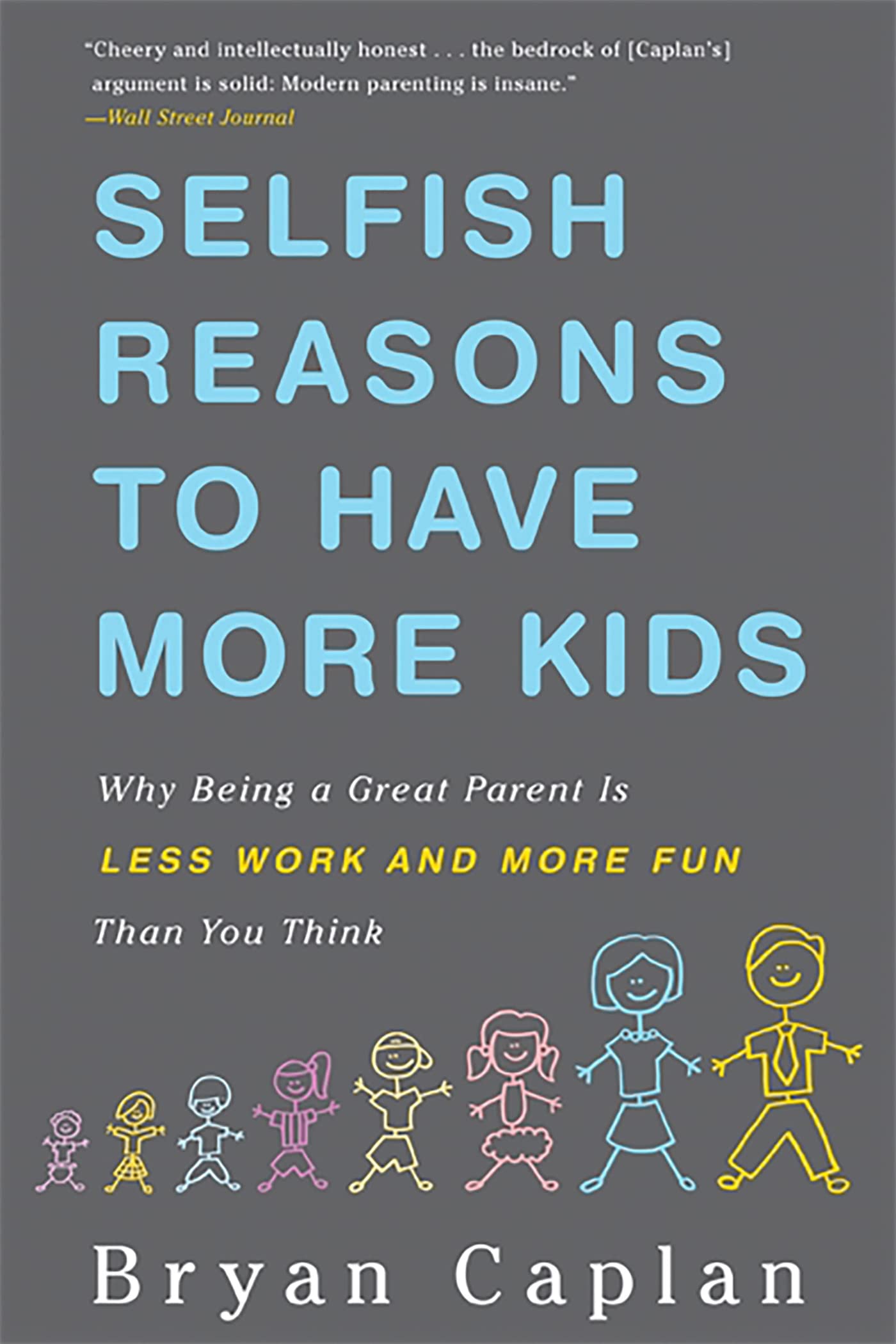Ensure your kids are reasonably happy. It's not super expensive, they don't need a trip to Disney World every year or anything. Try not to let them make obvious, life altering mistakes. Past that, just enjoy the ride.
Do you mean ROI for the parent (satisfaction of spending time with your child) or for the child? It seems counter-intuitive but I believe a lot of research has shown that upbringing actually doesn't matter too much, provided you meet a certain obvious threshold (giving them proper food, not abusing them, etc)
Source: https://www.amazon.com/Selfish-Reasons-Have-More-Kids/dp/046...
Caplan's "Selfish Reasons to Have More Kids" (https://www.amazon.com/Selfish-Reasons-Have-More-Kids/dp/046...) has some data showing that parents are putting more and more time into children. (And his argument is that it is mostly unnecessary, i.e. it doesn't correspond to improved outcomes for children, given a relatively normal stable family.) I wonder how much of this is just changed social expectations (e.g. call Police / Child Services if you see a kid walking home along from school), how much is social signaling, how much is reduced family support.
2. Human life is its own good.
3. Bryan Caplan discusses this and many other interesting topics in Selfish Reasons to Have More Kids: Why Being a Great Parent is Less Work and More Fun Than You Think https://www.amazon.com/Selfish-Reasons-Have-More-Kids/dp/046....
Caplan has a counterargument to this - twin studies and various observational studies that attempt to do similar things. He goes into detail occasionally on his blog, and also in his book:
http://www.amazon.com/gp/product/0465028616/ref=as_li_tl?ie=...
(The focus of the book is not on education, but on how variation in parenting strategy does not affect adult outcomes. )
Also, your view is not incompatible with Caplan's "elitist, Ayn Rand-ian worldview". Caplan merely asserts that at the time of entering college, it's pointless for most people. The specific reason at which it became pointless for them is irrelevant - "socioeconomic factors", genetics or whatever, it's still a waste of money.


https://www.amazon.com/Selfish-Reasons-Have-More-Kids/dp/046...